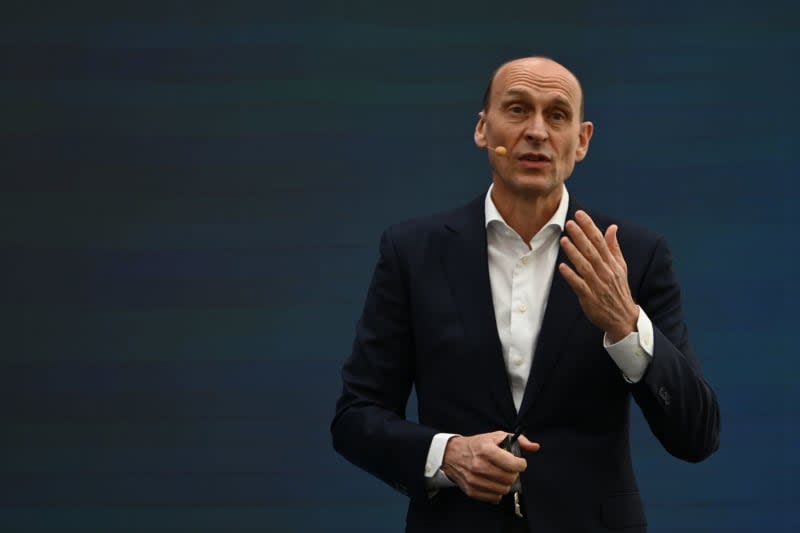German auto giant VW expects equal footing with Chinese rivals

Leaders of German automotive giant Volkswagen (VW) are expecting the next two years in the highly competitive Chinese car market to be difficult, but don't fear challenges from rival Chinese carmakers in the European market.
Chinese carmakers will eventually need to invest in European production plants to build vehicles locally instead of shipping huge numbers of finished vehicles by ocean, Ralf Brandstätter, head of VW's China business, said on Wednesday in Beijing ahead of a major auto show in the Chinese capital.
That would also put Chinese competitors on more equal footing with European rivals because of higher labour and energy costs in Europe, Brandstätter said.
"Sending a huge amount of ships of cars from China to Europe, this will not be a long lasting model I think," he said. "They have to compete in the same environment as we are competing."
Major Chinese brands such as the electric car giant BYD and the state-owned Saic Group are currently using a fleet of cargo ships to export their vehicles worldwide. The first deliveries to Germany have already occurred.
Chinese vehicles have not flooded the European market, as some feared, but Chinese brands are gaining a foothold with consumers.
In China, consumers have been impressed with Chinese electric vehicle brands, which offer favourable prices and competitive technology.
Volkswagen, which invested heavily in the Chinese market, has not yet been able to keep up with BYD or the US electric car manufacturer Tesla.
"I am not afraid of competition from Chinese brands in Europe," Volkswagen's chief executive, Oliver Blume, said on Wednesday.
Blume said he'd rather see a "fair deal" for all automakers as opposed to punitive tariffs on Chinese-made vehicles, which may result from the European Union's ongoing anti-subsidy investigation.
Brandstätter predicted a difficult next two years for automakers in the Chinese market as fierce competition drives down prices and pushes some companies out of business.
"In April, we saw another round of price reductions coming, so this fierce competition will hold on for the next few years," Brandstätter said.
Many manufacturers of purely electric cars have significantly damaged their profit margins in recent years, he said, "so this leads to a consolidation of the market."
He suggested that companies with lower sales volumes, below 100,000 or 150,000 vehicles per year, would not survive the coming competition.
According to Brandstätter, Volkswagen plans to prepare for fierce price competition over the next two years and finance the development of its e-car business in China with sales of combustion-engine vehicles, which are still going well.
"This means for us two heavy years because we will not make each volume for any price," Brandstätter said.
He added that the company may have to accept lower sales figures in order to maintain pricing, which will likely mean losing market share in the short term.
Volkswagen plans to be back on a par with the competition in China in terms of costs and technology beginning in 2026 for entry-level compact cars, he said.
The costs of the vehicle platforms developed for China are to be reduced by 40%, he said.
By 2030, the Volkswagen Group, which also includes brands such as Audi and Porsche as well as Volkswagen, aims to have sold around 4 million vehicles in China, with half of all cars sold electrically powered.
According to VW, this would correspond to a market share of 15%.
